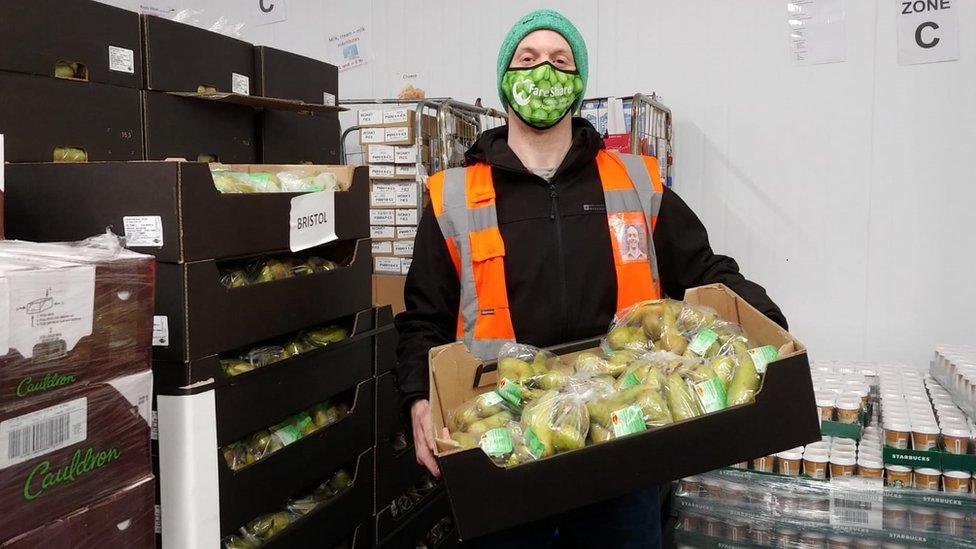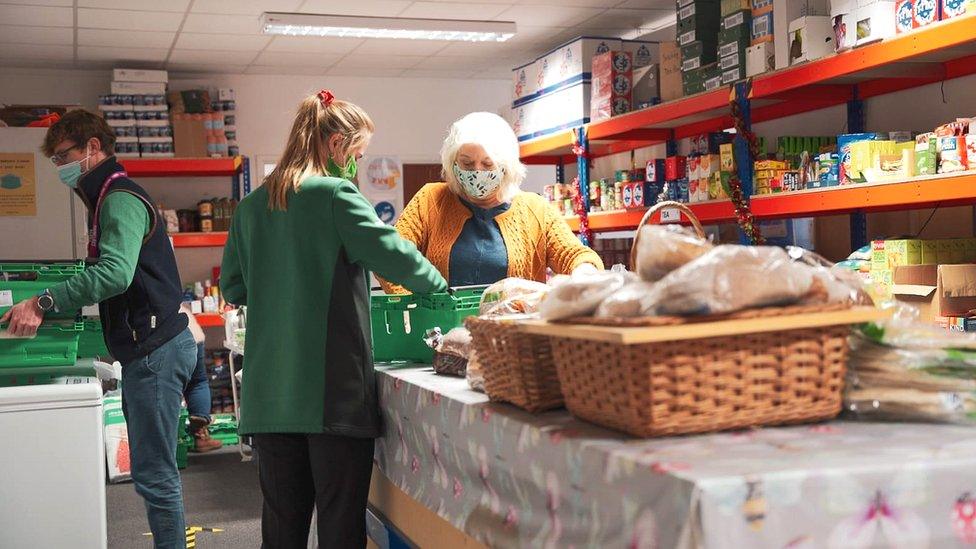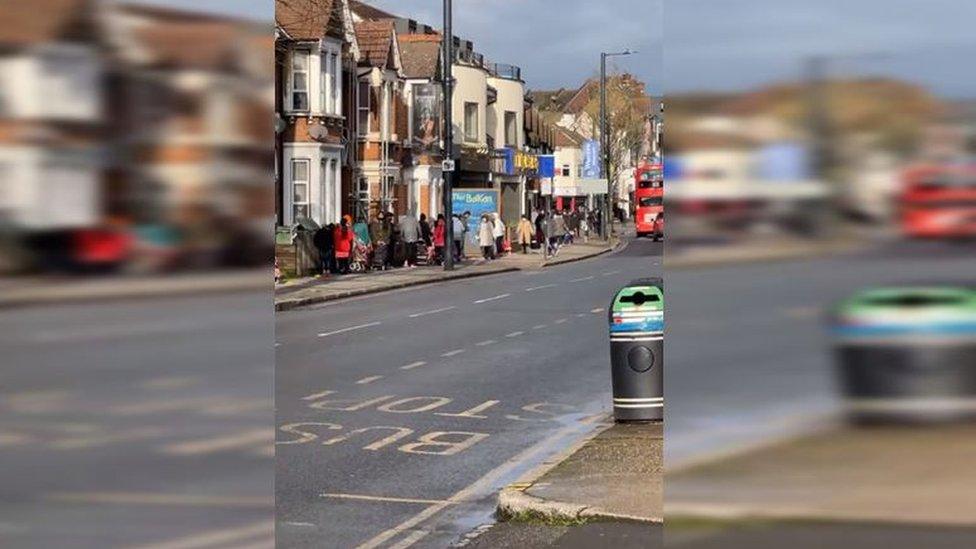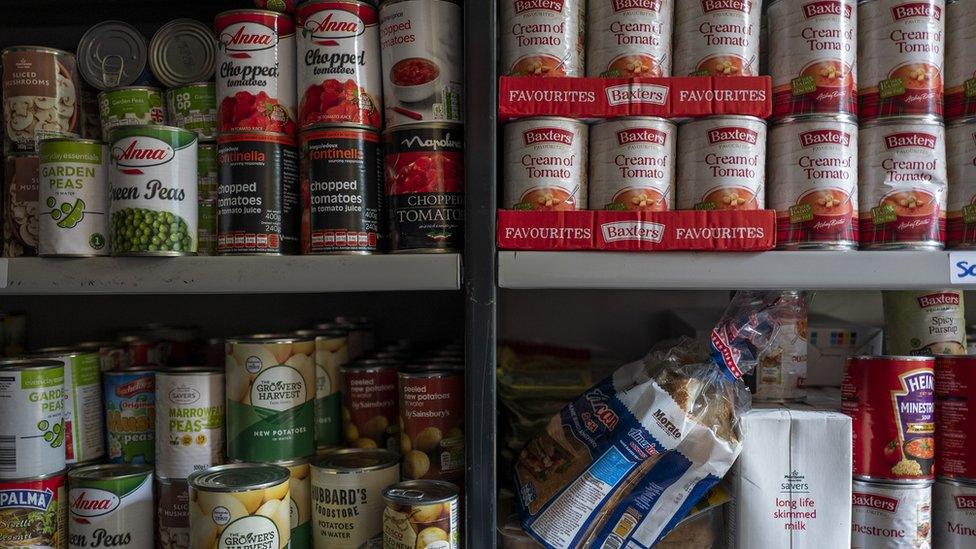Food charity FareShare extends emergency meals support
- Published

The warehouse was donated to FareShare South West for free
A food charity aiming to distribute food for 2.5 million emergency meals by the end of March has said there is enough demand to double that.
FareShare South West had planned to send out food for one million meals from its base in Bristol.
It operates by taking surplus food to help those in need - the homeless, the vulnerable and those struggling to make ends meet, as well as people shielding.
It said feeding pupils during lockdown was a factor in increasing its supply.
More than 700 suppliers such as supermarkets, farmers and also the government provide food to FareShare.
The charity then redistributes it to hundreds of different organisations every week from Gloucestershire down to Devon and Cornwall.
'Food for breakfast'
"If we doubled in size there would still be enough demand," said FareShare South West's head of development Phoebe Ruxton.
"Frontline groups are still clamouring for food."
Helping pupils was a "big deciding factor" in increasing its meals target, she said.
"Free school meals are available but they only cover lunchtime so we are helping families get food for breakfast and dinner," she added.

Hundreds of volunteers have worked at the FareShare South West emergency warehouse since lockdown began
"The stories we hear every day are nothing like we've heard before.
"I was talking to one charity we support and they had a woman come to them who they thought was anorexic at first, but realised was actually malnourished.
"She only had enough money to feed her child, so went without herself.
"They had a mini celebration when she was able to put on two stone.
"It's almost a tale from Victorian times."
'Unexpectedly in need'
Bath-based charity Mercy in Action was set up to help the poor in The Philippines but now also operates in the UK.
Co-founder Allison Todd said before the pandemic they were feeding 43 families but that "quickly rose to 120" and they now support about 170 households.
"I'm shocked by some of the cases, because it's things I'm used to seeing in less economically developed nations," she added.

Mercy in Action was set up to help the poor in The Philippines but now helps families in Bath too
"The majority of people we help are ordinary families who've found themselves unexpectedly in need. No one wants to get their food this way."
Although new infections are falling and Prime Minister Boris Johnson will next week announce when lockdown restrictions will be eased Mrs Todd said she feared food poverty could be a challenge beyond 2021.
"We are seeing people, who were fine in the first lockdown, losing their jobs or being furloughed."
"Talking to other agencies in Bath, everybody feels it will get worse before it gets better," she said.
Related topics
- Attribution
- Published17 February 2021

- Published12 February 2021

- Published26 December 2020
